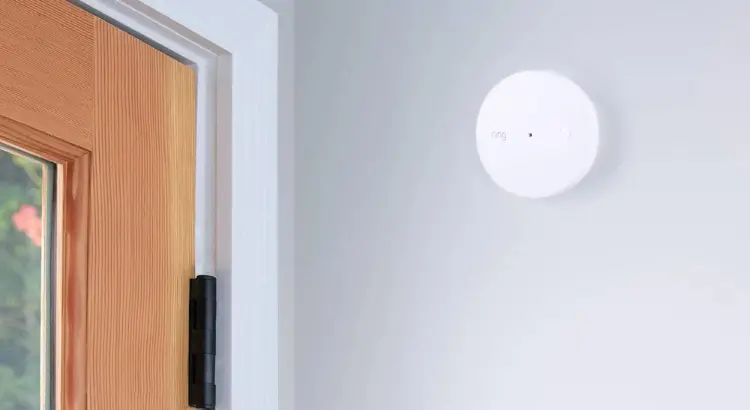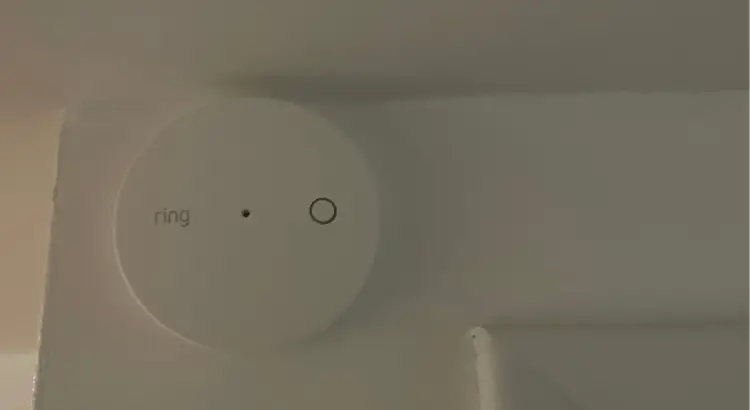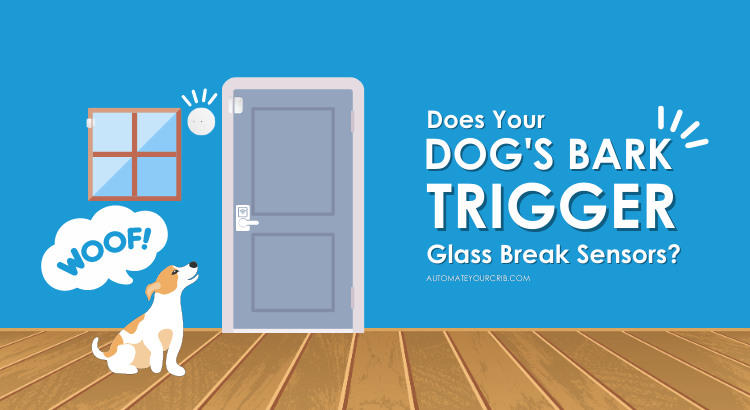DISCLOSURE: THIS POST MAY CONTAIN AFFILIATE LINKS, MEANING I GET A COMMISSION IF YOU DECIDE TO MAKE A PURCHASE THROUGH MY LINKS, AT NO COST TO YOU. PLEASE READ MY DISCLOSURE FOR MORE INFO.
Home security is a top priority for many homeowners, and glass break sensors play a crucial role in protecting against potential break-ins. But what about the barking of our furry friends? Can a dog’s bark trigger a glass break sensor?
In this article, I’ll dive into the technology behind glass break sensors and how they work to provide you with a clear answer to the question: Does your dog’s bark trigger glass break sensors?
Glass break sensors are designed to detect the specific sound of breaking glass, not general noise like a dog’s bark. They use advanced technology and can be adjusted for sensitivity, making it unlikely that a dog’s bark would trigger a false alarm.
The Science Behind Glass Break Sensors: How Does It Work?
Glass break sensors use microphones to detect the sound of breaking glass, which is then processed by an algorithm to determine if the sound is indeed a break-in attempt.
These sensors are highly sensitive and can detect the sound of breaking glass from a distance of up to 25 feet.
But how do they differentiate between the sound of breaking glass and other sounds, such as a dog’s bark?
How Glass Break Sensors Distinguish Sounds
To understand how glass break sensors distinguish between sounds, it’s important to understand the frequency of each sound.
The frequency of a dog’s bark is much lower than the frequency of breaking glass.
Glass break sensors are designed to only respond to high-pitched sounds in the frequency range of 2,000Hz to 10,000Hz, which is typical of breaking glass.
In other words, a dog’s bark is not high-pitched enough to trigger a glass break sensor. This means that, in most cases, a dog’s bark will not set off a glass break sensor.
What About Loud Barking Dogs?

While it’s true that a dog’s bark won’t typically trigger a glass break sensor, it’s important to note that in some cases, loud barking dogs can set off other types of sensors, such as motion sensors or acoustic sensors.
So, if you have a particularly loud barking dog, it’s best to make sure that your security system is equipped with sensors that are specifically designed to handle high-decibel sounds, such as motion sensors or acoustic sensors.
What Can Set off a Glass Break Sensor?
Glass break sensors are highly sensitive devices that detect the sound of breaking glass and alert homeowners of potential break-ins.
However, it’s not just the sound of breaking glass that can set off these sensors. Other high-pitched sounds, such as shattering plates or mirrors, or even fireworks, can also trigger the sensors.
Additionally, some glass break sensors are also equipped with vibration sensors that can detect the sound of glass breaking even if it’s not audible.
It’s important to keep in mind that these sensors can be triggered by other loud noises, such as sirens or loud music, so it’s essential to adjust their sensitivity accordingly.
To ensure the effectiveness of your glass break sensors, it’s important to regularly test and calibrate them to avoid false alarms.
Several factors can affect the sensitivity of a Glass Break Sensor. These include:
- The placement of the sensor: If the sensor is placed in an area with high levels of background noise, it may become more sensitive to other sounds.
- The age of the sensor: As the sensor ages, it may become less accurate in detecting glass breaks.
- The type of glass: Some types of glass are more prone to breaking with a louder sound than others.
How to Prevent False Alarms?
While a dog’s bark is unlikely to set off a Glass Break Sensor, there are still ways to prevent false alarms from happening. These include:
- Placing the sensor in a location with minimal background noise.
- Testing the sensor regularly to ensure it is working properly.
- Make sure the sensor is not placed near windows or doors that are frequently opened and closed.
- Keeping your dog away from the sensor when you are not home.
How Reliable are Glass Break Sensors?
Glass break sensors have become a popular component of home security systems due to their ability to detect the sound of breaking glass and alert homeowners of potential break-ins.
However, the reliability of these sensors is a common concern among homeowners.
The truth is, the reliability of glass break sensors depends on several factors, including their placement, sensitivity settings, and the type of glass being used in the home.
Proper placement of the sensors can greatly increase their reliability, as they need to be able to clearly pick up the sound of breaking glass. Adjusting the sensitivity settings can also help avoid false alarms from loud noises, such as sirens or fireworks.
It’s also important to note that not all glass is created equal. Tempered glass, for example, shatters into small, rounded pieces that are less likely to trigger a glass break sensor than sharp pieces of annealed glass.
Choosing the right type of glass for your windows and doors can also impact the reliability of your sensors.
What Are The Benefits Of Installing Glass Break Sensors?

Installing glass break sensors in your home security system can provide numerous benefits to homeowners.
Firstly, glass break sensors offer an added layer of protection against potential break-ins. Which we use for additional protection with our Ring Alarm.
These sensors are specifically designed to detect the sound of breaking glass, alerting homeowners and the monitoring company of a potential intrusion. This can deter would-be intruders and provide peace of mind for homeowners.
Another advantage of glass break sensors is that they are highly customizable. They can be placed in various locations throughout the home and adjusted for sensitivity, making them suitable for homes of all sizes and layouts. This flexibility ensures that every inch of a home is protected, including hard-to-reach areas.
Moreover, glass break sensors are a cost-effective solution for home security. They are relatively affordable and can be easily integrated into an existing security system, providing additional protection without breaking the bank.
In addition, depending on the security alarm system, glass break sensors can provide 24/7 protection, even when homeowners are away from their homes. This can provide peace of mind for those who are worried about leaving their homes unattended.
With these sensors, homeowners can rest assured that their homes are protected, even when they are not there.
With that being said, I would say these sensors offer an added layer of protection, customization options, cost-effectiveness, and 24/7 peace of mind.
Do I Need Glass Break Sensor?
A glass break sensor may not be necessary for everyone’s home security system. Factors such as the location of the home and the presence of other security measures can impact the need for a glass break sensor.
However, for many homeowners, glass break sensors provide an important layer of protection by detecting the sound of breaking glass, which can indicate a potential break-in.
The number of sensors needed can vary based on the type of sensor and the size of the rooms in the home.
Ultimately, the decision to install a glass break sensor should be based on a combination of personal security needs and budget.
Getting the Right Glass Break Sensor

Choosing the right glass break detector is crucial for ensuring the security of your home.
In my opinion, among the available options in the market, the Ring Glass Break Sensor is considered one of the best.
This sensor uses advanced technology to detect the sound of breaking glass, and it integrates seamlessly with the Ring Alarm system to trigger the alarm and alert you of any potential intrusion.
The Ring Glass Break Sensor is also easy to install and can be placed near windows or doors for optimal coverage.
With its compact size, it won’t take up much space or detract from the aesthetics of your home.
In addition, If you have a Ring Alarm system it works exceptionally well together. It integrates seamlessly into the system and provides reliable protection for your windows and glass doors.
Even If you lose power or internet, it will keep you protected for up to 24 hours.
The sensor uses advanced acoustic technology to detect the sound of breaking glass, triggering the alarm if necessary.
The Ring Glass Break Sensor also features an easy installation process and can be easily controlled through the Ring App, making it a convenient and user-friendly option for securing your home.
Based on our experience, we wholeheartedly recommend the Ring Glass Break Sensor as an excellent choice for those looking to enhance the security of their home with a reliable and high-performing device.
The price of the Ring Glass Break Sensor may vary and is subject to change due to limited-time deals. I recommended checking the official Ring website or Amazon.com for the latest pricing information.
Frequently Asked Questions
It depends on the type of sensor used in the security system. While a dog’s bark won’t typically set off a glass break sensor, it can set off other types of sensors, such as motion sensors or acoustic sensors.
You can prevent your dog’s bark from setting off your security alarm by using sensors that are specifically designed to handle high-decibel sounds, such as motion sensors or acoustic sensors.
Yes, glass break sensors are highly effective at detecting break-ins. They use advanced technology to distinguish between the sound of breaking glass and other sounds, making them a reliable security solution for homeowners.
Final Note
In conclusion, a dog’s bark will not typically set off a glass break sensor. These sensors are designed to respond only to the high-pitched sound of breaking glass.
While some particularly loud barking dogs may set off other types of sensors, it’s best to choose security systems that are equipped with sensors specifically designed to handle high-decibel sounds.
So, whether you’re a dog owner or just looking to upgrade.
While you’re here, please, don’t forget to check out the recommended gadgets page for the best tech for your buck.
For more useful tips and tricks with Home automation, please continue to check out AutomateYourCrib.com.
Please e-mail me (rodney@automateyourcrib.com) your opinion or comment or if you have any ideas for a future post you would like to read, drop me a line or two as I appreciate my audience.
It's great to see that you have come across my website. I hope you explore it thoroughly. The website caters to regular consumers who have an interest in home automation. I am based in the Tri-state area and enjoy the latest smart tech along with my wonderful wife and three energetic boys.

